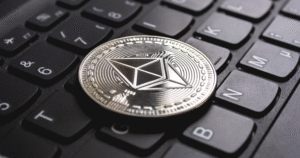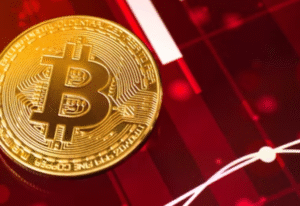$BTC $ETH #Bitcoin #Crypto #Blockchain #SatoshiNakamoto #DigitalAssets #Investing #Finance #Cryptocurrency #DeFi #Web3
Is Bitcoin More Than Just Crypto? Insights from the Rumored Creator, Satoshi Nakamoto
What news has emerged from the crypto world recently? The ongoing speculation surrounding Jack Dorsey as the elusive Satoshi Nakamoto has taken a fascinating turn. Dorsey, co-founder of Twitter and a prominent advocate for Bitcoin, has sparked a heated discussion with his assertion that “Bitcoin is not crypto.” This statement raises important questions about the nature of Bitcoin and its unique position in the digital asset landscape.
Dorsey’s declaration sets the stage for a deeper examination of Bitcoin’s identity. Unlike many other cryptocurrencies, which often serve as utility tokens or platforms for decentralized finance (DeFi), Bitcoin has consistently been viewed as a store of value. This distinction is crucial, as it suggests that Bitcoin is more akin to digital gold than a mere cryptocurrency.
Understanding Bitcoin’s Unique Position
The concept of Bitcoin being separate from the broader cryptocurrency category is not entirely new. Advocates like Dorsey argue that Bitcoin possesses unique characteristics that set it apart from altcoins. For example, Bitcoin’s limited supply of 21 million coins creates scarcity, a feature that has historically driven its value upward. In contrast, many altcoins can be created with much greater ease, diluting their value proposition.
Moreover, Bitcoin has established itself as a reliable hedge against inflation and economic instability. In an era of unprecedented monetary policy and fiscal stimulus, Bitcoin’s decentralized nature offers a refuge for investors seeking stability. This reliability enhances Bitcoin’s status as a digital asset distinct from other cryptocurrencies that may experience volatility in their utility or market perception.
The Market’s Reaction to Dorsey’s Claim
Following Dorsey’s comments, the market has shown a mixed response. Some enthusiasts agree with his perspective, emphasizing Bitcoin’s role as a store of value over its transactional capabilities. Others, however, argue that categorizing Bitcoin separately undermines the broader crypto movement that promotes decentralization and innovation across various platforms.
This discourse is vital as it reflects the ongoing evolution of the cryptocurrency ecosystem. The conversations surrounding Bitcoin’s identity, and its relationship with other digital assets, indicate that the market is maturing. As investors become more discerning, understanding the nuances between Bitcoin and other cryptocurrencies is essential for making informed decisions.
The Future of Bitcoin and Cryptocurrencies
Looking forward, it is crucial for investors to remain engaged with both Bitcoin and the wider cryptocurrency market. With institutions increasingly recognizing Bitcoin as a legitimate asset class, the implications for investment strategies are profound. Additionally, as regulatory frameworks develop globally, the relationship between Bitcoin and other cryptocurrencies will continue to evolve.
Ultimately, whether or not one agrees with Dorsey’s assertion, the debate highlights Bitcoin’s unique standing in the digital economy. As a potential safe haven and a symbol of financial independence, Bitcoin may very well transcend the boundaries of traditional cryptocurrencies.
For those looking to delve deeper into the intricacies of the crypto market, consider exploring the latest trends and insights through our comprehensive crypto section. Additionally, for practical engagement with the crypto space, check out Binance for trading opportunities.
In conclusion, the conversation surrounding Bitcoin’s identity continues to evolve. As the cryptocurrency landscape develops, understanding the distinctions and implications of Bitcoin versus other digital assets will be crucial for investors navigating this exciting frontier.







Comments are closed.